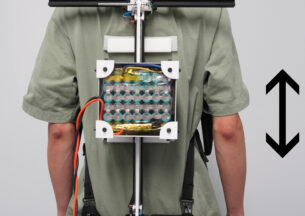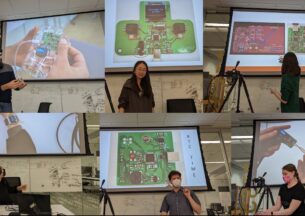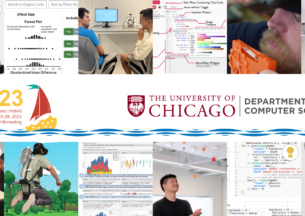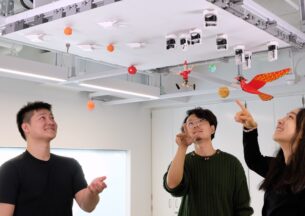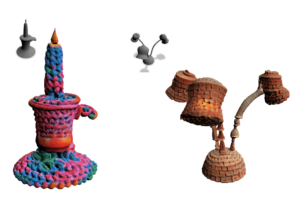Nivedita Arora (Georgia Tech) - Building Sustainable Computational Materials
We are rapidly moving towards a world with a trillion internet-connected devices, from smartwatches to industrial sensors. However, computing has not yet disappeared into everyday objects and surfaces we interact with, as Mark Weiser envisioned. Today’s Internet of Things (IoT) devices are bulky, expensive, and battery-powered, making them environmentally harmful and heavily reliant on regular maintenance and replacement. Four system design challenges keep us from useful, integrated, and low-impact ubiquitous computational things: form factor, maintenance-free operation, low cost, and ecological impact or environmental sustainability. With this vision in mind, I build sustainable computational materials by rethinking the computing stack from the bottom up, going beyond off-the-shelf device components, and co-designing across novel materials, fabrication methods, low-power circuits, and industrial design. To illustrate this, I will provide an example of an easy-to-retrofit, inexpensive, battery-free sticky note that can wirelessly sense acoustic vibrations and provide feedback. This work will encompass three projects with increasing capability. SATURN is a self-powered flexible acoustic sensor based on a triboelectric generator made from inexpensive everyday materials like paper and plastic. MARS demonstrates simultaneous wireless sensing of speech, direction, identity, and touch by multiple interactive stickers in an indoor environment in nano-power. VENUS adds feedback to the stickers in the form of a low-voltage display powered by the human body or ambient room light. I discuss the potential application of sustainable stickers in interaction sensing, mobile health, and infrastructure monitoring. I will conclude by laying a path forward for systems, toolkits, and applications that help progress the ambitious research agenda of sustainable computational materials throughout their full lifecycle – manufacturing, operation, and reuse or disposal.
Speakers
Nivedita Arora
Nivedita Arora is a postdoctoral researcher in the School of Interactive Computing at the Georgia Institute of Technology. She received her Ph.D. in CS and MS in HCI, advised by Gregory Abowd and Thad Starner at GT’s Ubicomp Lab. She is passionate about designing sustainability-first computing systems and exploring their applications. She works at the intersection of novel materials, low-power embedded systems, human-computer interaction, and design. Her research has been published in top-tier ACM Systems and HCI venues such as IMWUT, UIST, and MobiSys. It has won several recognitions, including research highlights in Communications of the ACM and SIGMOBILE’s GetMobile Magazine, two best papers (ACM IMWUT, ACM SenSys-ENSsys), and two best posters awards (MobiSys, UIST). In addition, she was the recipient of the ACM UbiComp Gaetano Borriello Outstanding Student Award, Georgia Tech’s GVU Foley Scholar, Outstanding GRA award in GT’s College of Computing, Rising Stars in EECS, and GT’s Faces of Inclusive Excellence.





